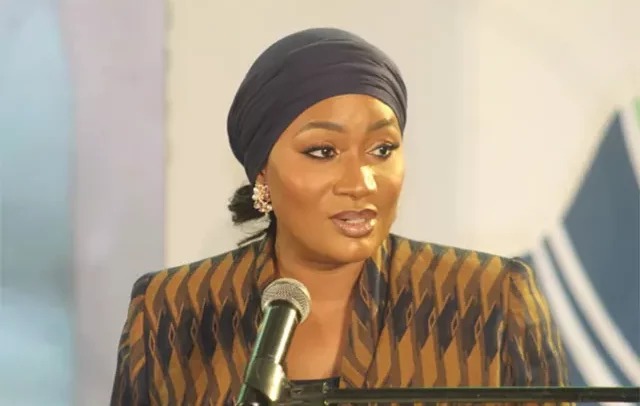Samira Bawumia
The Former Second Lady, Hajia Samira Bawumia, has called on stakeholders, especially governments, to prioritise the youth in their quest to seek for solutions to tackle climate crisis.
Speaking at the 2025 Africa Women and Children Conference (AFRIWOCC) yesterday in Accra, Mrs. Bawumia said the youth, who consist of the continent’s growing population, could help provide bold ideas, meaningful partnerships and a renewed resolve to shape narratives on climate change.
She said, “We must ensure that every proposal considered is assessed for its potential impact on women, children, and young people. No longer should they be peripheral voices in climate action, they must be empowered and be at the front and centre, reflecting the lived experiences of its most vulnerable populations.”
According to her, the 2025 AFRIWOCC marks a pivotal moment in a journey that began just two years ago with the commitment to translate the aspirations into interventions, partnerships, and policy influence.
Touching on some successes chalked by the organisation, the former Second Lady said NextGen Youth Climate Forum at the Africa Climate Summit in Addis Ababa hosted by AFRIWOCC is considered the single most attended youth event at the summit.
She stated that the forum provided space for young Africans to present scalable climate solutions and integrate their innovations into the broader climate agenda.
Mrs. Bawumia however, indicated that despite the strides made, many commitments from the 2023 conference remain aspirational, particularly climate financing and the quest to achieving full inclusivity.
“We’ve come a long way in a short time, but we still have a long journey ahead. We must translate dialogue into systemic reforms and get fully funded activities off the ground. Young voices must be at the table not just as leaders of tomorrow, but as leaders of today and with greater impact, we must connect these ideas to policy, financing, and implementation,” she added.
The Canadian High Commissioner to Ghana, Myriam Montrat, for her part, reaffirmed commitment to climate education and skills training to tackle climate challenges.
She also emphasised the critical role of teachers in preparing students to tackle climate challenges, while expressing concern that only 30% of educators currently feel confident teaching climate-related topics.
The High Commissioner also highlighted the inadequacies in both infrastructure and curricula, which she said are often ill-equipped to address the urgent demands of climate education.
“We believe that climate education must be integrated into broader educational goals, empowering students with the knowledge and skills to contribute to sustainable solutions,” she stated.
She also mentioned the devastating impact of climate change on women and girls, particularly those who are socially excluded, noting that their increased care giving and household responsibilities heighten dependence on threatened natural resources, leading to “time poverty, limited adaptability, and reduced access to education and economic opportunities.”
The High Commissioner further noted that Canada is open to deeper engagement with Ghana’s Ministries of Education, Youth, and Gender to identify synergies in expanding skills training opportunities, especially for young women entering non-traditional job sectors.
The two-day event, which started on Monday, October 6 and ends today, Tuesday, October 7, brought together some members of the diplomatic community, academia, civil society organisations (CSOs), and students from some senior high schools, was held under the theme “Young Voices, Innovative ideas, Greater Impact for Africa”.


